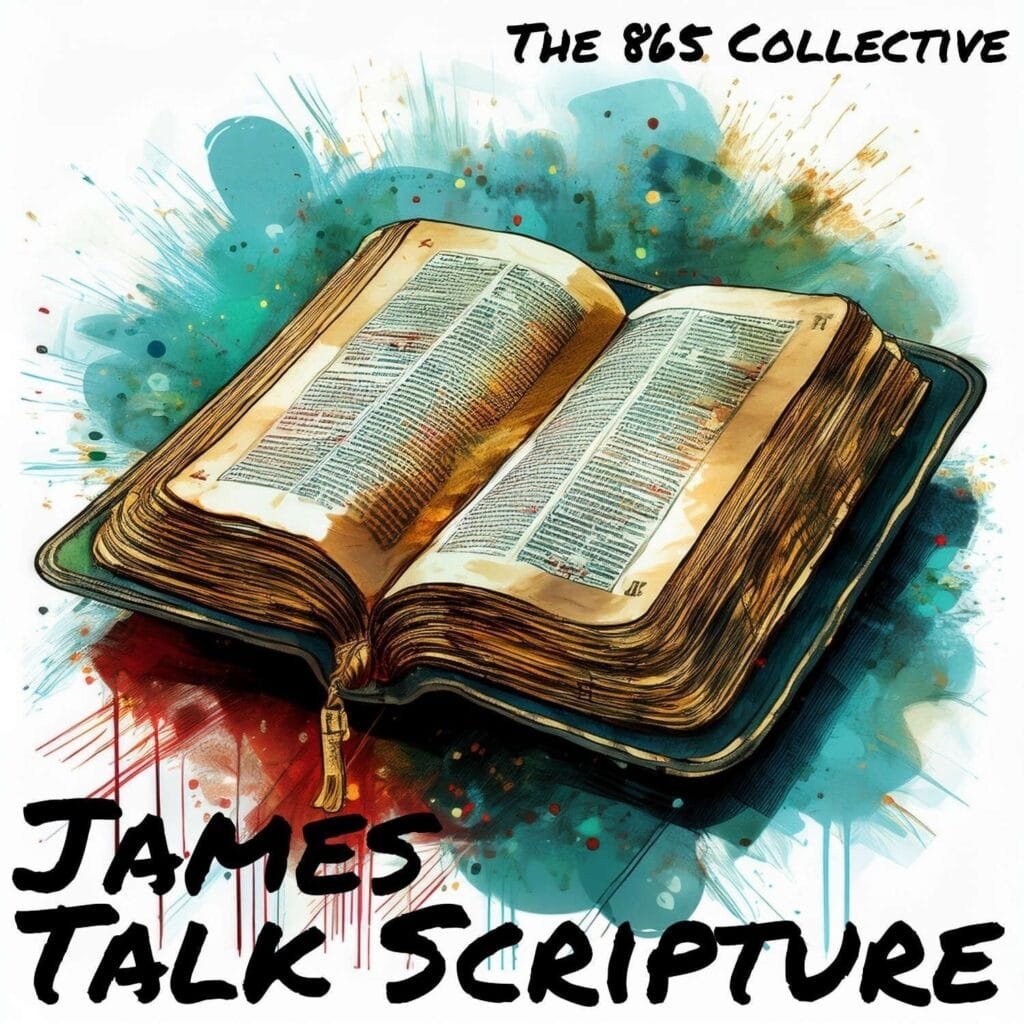“Not many of you should become teachers, my brothers, for you know that we who teach will be judged with greater strictness. For we all stumble in many ways. And if anyone does not stumble in what he says, he is a perfect man, able also to bridle his whole body. If we put bits into the mouths of horses so that they obey us, we guide their whole bodies as well. Look at the ships also: though they are so large and are driven by strong winds, they are guided by a very small rudder wherever the will of the pilot directs. So also the tongue is a small member, yet it boasts of great things.” James 3:1-5a
The tongue is powerful—it can do so much good or cause so much harm. Our words carry weight, more than we sometimes realize. That’s why James gives a serious warning to those who want to teach. People have always wanted to be heard, and that desire isn’t new. But James points out that those who teach will be held to a higher standard. Scripture tells us that God will hold everyone accountable for their words, but teachers? They’ll face even greater scrutiny.
And honestly? That’s something a lot of people don’t fully consider when stepping into leadership or teaching roles in the church. James isn’t trying to discourage people from teaching—he includes himself when he says, “We all stumble.” But he does want us to take it seriously, to approach it with humility and maturity. If we’re in a position of influence, mistakes can have even bigger consequences. It’s not something to take lightly.
But here’s the thing—even if we are not a teacher in the traditional sense, this still has application for us. When following Christ, we are teaching people something about Him, whether we realize it or not. Our coworkers, friends, kids, even strangers—they’re watching how we live. They are listening to what we say and how we say it. For some, we might be the first or only “Bible” they ever read. The more vocal we are, the more scrutiny we will face.
And let’s be real—none of us are perfect. We’re going to mess up, say the wrong things, and fail at times. I’ve felt that weight since starting this podcast. Even just sharing a short, simple thought about God’s Word each day comes with responsibility.
The mark of spiritual maturity is learning to control our words with wisdom and restraint. No one will do this perfectly, but we should be intentional about guarding our tongues and honoring God with our speech. I am not saying all this to intimidate us, but we have to approach representing Christ seriously and more prayerfully. This is definitely an area where I really need the Holy Spirit to do a work in me—not just to renew my mind, but also to transform the words I speak.
James uses two examples to illustrate the power of our words: a bit in a horse’s mouth and a rudder on a ship. Small things, but they have the power to steer something much larger. A bit controls a horse, and a rudder guides a ship—even in strong winds. Our words do the same for our lives.
Think about it—what we say shapes our relationships, our emotions, and even our own mindset. Science is actually proving what Scripture has said all along—words are powerful.
I was talking with a friend recently about how some Christians tend to dismiss psychology. One of my favorite books is Atomic Habits by James Clear. I have made a point of reading this book each year. Speaking of the mind, I am currently reading Winning the War in Your Mind by Craig Groeschel. Anyways, we got into a discussion about neural pathways, habits, and the process of things, like renewing your mind. And really, at its core, psychology is just the study of how God designed our brains to work. The more science discovers, the more we see how God has carefully created us. The creativity of our God is mind-blowing. Pun intended.
Researchers have found that words literally affect our brains. Studies continue to show that the brain releases serotonin and dopamine in response to words—meaning our words play a significant role in our mental health and overall well-being. A surprising discovery involves the thalamus, a part of the brain that scientists previously didn’t associate with processing language and emotions. But now, new studies suggest the thalamus plays a significant role in how words and emotions influence us. Even more fascinating, the thalamus sends signals to the cerebral cortex—the part of the brain responsible for movement. So, in a way, words can literally move us.
James wasn’t a neuroscientist, but he understood this truth. Our words have weight. Like a rudder guiding a ship, our mouths direct the course of our lives and impact those around us.
Because our words carry such weight, we should guard them carefully. Let’s echo the psalmist who prayed, “Set a guard, O Lord, over my mouth; keep watch over the door of my lips!” (Psalm 141:3).
ESV Study Bible. (2010). Crossway Books.
Words activate hidden brain processes shaping emotions, decisions, and behavior. (2025, January 25). ScienceDaily. https://www.sciencedaily.com/releases/2025/01/250108143447.htm
From Talk Scripture: The Weight of Words | James 3:1-5a
https://podcasts.apple.com/us/podcast/the-weight-of-words-james-3-1-5a/id1786264764?i=1000692995669
This material may be protected by copyright.

